You can trust Cyclingnews
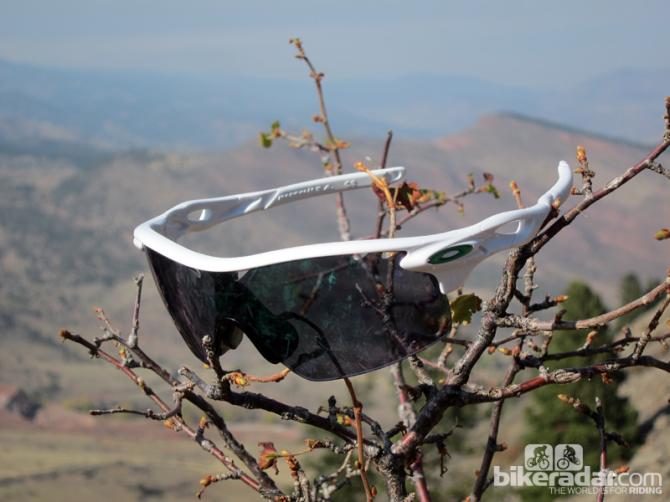
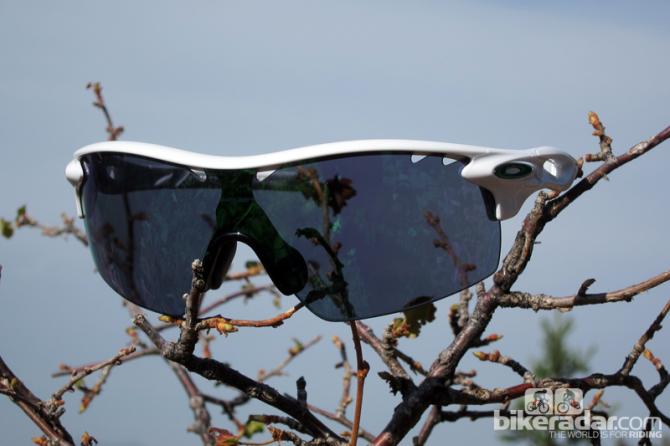
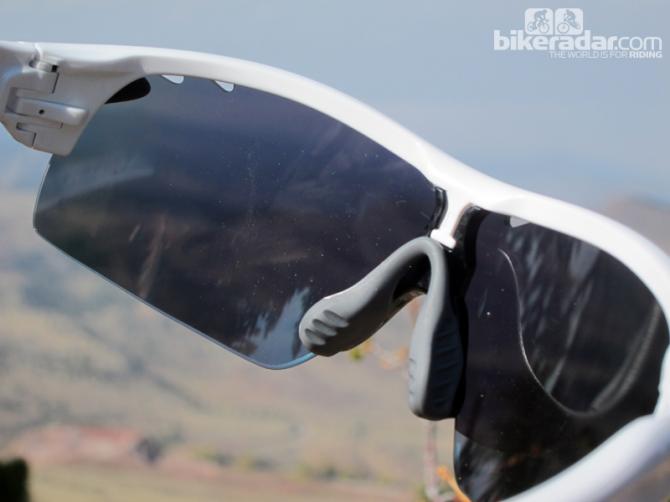

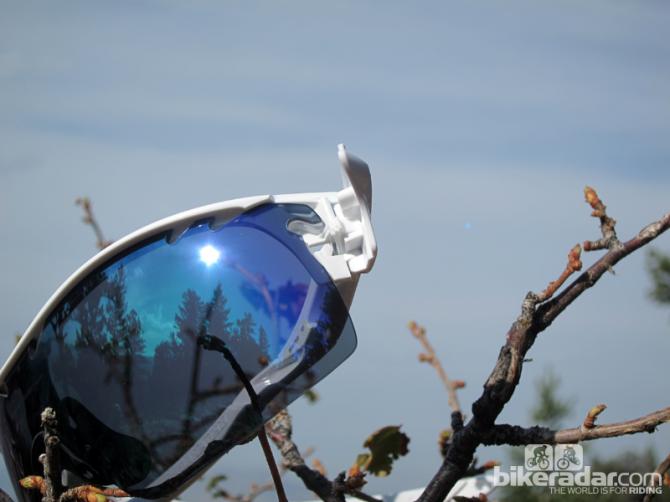
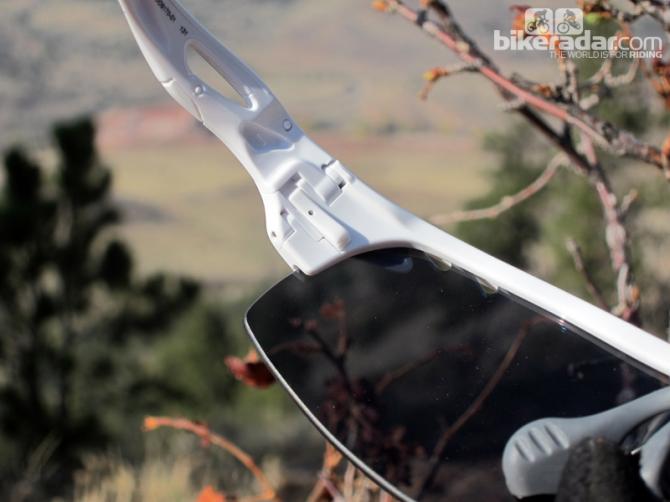
This article originally published on BikeRadar
The new Oakley Radarlock XL improves on the standard Radar sunglasses with its clever Switchlock system. As opposed to the old setup where you almost felt like you were about to break the frame during a lens swap, Switchlock makes it a gentler affair that also leaves fewer fingerprints.
As the name suggests, our 'XL' test variant shares the same features as the regular Radarlock glasses but with a lens that's a substantial 7mm taller. This lends a little more coverage and protection but for riders that tend to keep their heads tilted a little further down – such as during time trials – it also puts the top of the frame well out of the field of view, leaving nothing but a clear perspective of your surroundings.
Oakley's sponsored pros have apparently taken notice as well with around 25 percent of them choosing to go big, according to company sports marketing man Steve Blick.
Optically, Oakley once again hits it out of the park with the Radarlock XL lens, which produces no noticeable distortion whatsoever (as compared to some poorer budget models that have occasionally given us headaches) and is finished with refreshingly dull edges that we anticipate would be less likely to cut you in a crash. As usual with Oakley, the selection of lens tints is generous and includes both polarized and photochromic options.
As with any large-format piece of eyewear, though, the Radarlock XL isn't totally immune to fogging, particularly on slower and steeper climbs at higher humidity levels. That being said, vents across the top edge help and the fogging quickly dissipates once the speeds pick up again.
Oakley's typical three-point fit is secure and stable – we never had to reposition or adjust the glasses during any of our road, 'cross, or mountain bike test rides. However, the extra mechanical bits that lend the Radarlock XL its easy and speedy lens interchangeability (not to mention the expanded possibility of custom color combinations) come at the cost of sturdiness. We didn't actually break our sample frames during testing but the multi-piece construction definitely feels a little flimsier than standard Radars.
We're a little disappointed that Oakley continues to apply its hydrophobic coating only to the exterior of the lens. This surface treatment is outstanding for keeping rain, road spray, and debris from obscuring your vision but it does nothing to help with the much more common problem is sweat dripping down on to the inside.
"Yes I agree, both sides would be optimal, and that's something I personally want," Blick admitted to BikeRadar. "Not to let too much out of the bag, but right now we are at the limit of the application technology. It's not really a question of cost."
Blick also went on to defend the company's decision of coating the front side of the lens instead of the back, saying it provides a secondary protective benefit for the Iridium coating.
"The current hydrophobic [coating] has the direct performance benefit to the rider (resistance to debris, water, etc while riding), but there are also secondary long term durability benefits. The Iridium coating is essentially an extremely thin coating of metal. The Hydrophobic layer protects the Iridium from oxidation and physical erosion."
Current Radar owners will also be bummed to hear that their old lenses won't fit in newer Radarlock frames – and neither are the XL and standard Radarlock lenses interchangeable, either.
And finally, yes, the Oakley Radarlock XLs are expensive – in fact, there are few options that cost more. However, the performance that comes with that price is undeniable and we've encountered few cyclists who have regretted the purchase in hindsight.
Price: US$220-300
Cyclingnews verdict: 4 stars
More information: www.oakley.com